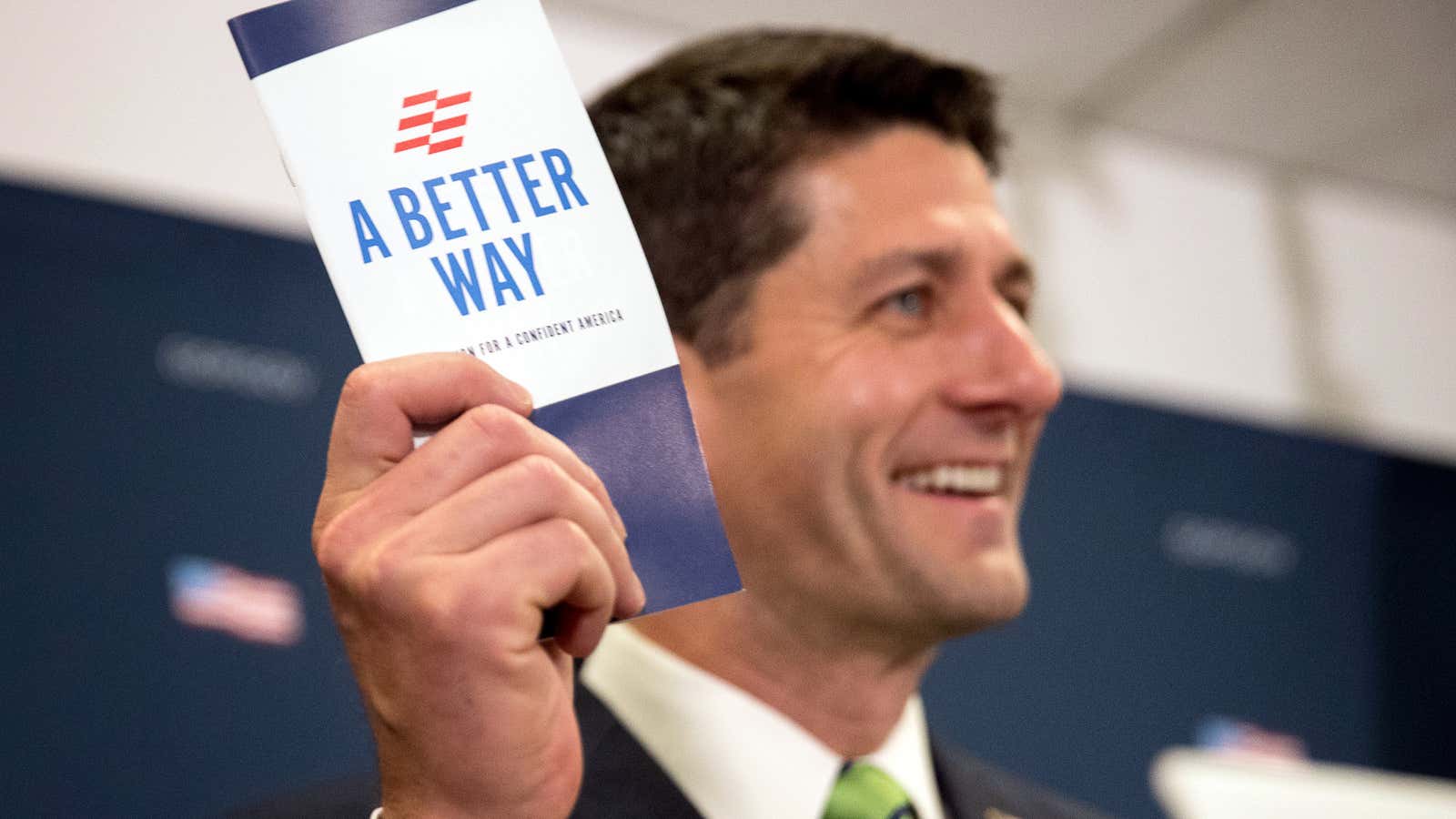The politics of the 1990s are really back—not just all the sex talk, but also the spectacle of watching a party come to grips with the fact that its presidential nominee is going to lose.
“No blank check” may not sound like much, but it’s a kiss of death for Donald Trump, delivered by none other than Republican Speaker of the House Paul Ryan.
On a conference call with fellow Republican members of Congress this morning, Oct. 10, the party’s highest-ranking official told his caucus that he would no longer defend the erratic New York builder, and instead focus on protecting his majority in Congress.
The reason? “We can’t afford to give Hillary Clinton a blank check.” In other words, we have to get ready for Donald Trump to lose. “Do what’s best for you in your district,” the House speaker told his members, some of whom angrily accused him of abandoning their party’s candidates.
Ryan emphasized that he wasn’t withdrawing his personal endorsement of Trump. But the move does foreshadow a movement of national party resources away from Trump’s campaign and toward state and local races, which will only make Trump’s path to victory harder.
Coming after a blustery debate performance where Trump sought to shift attention away from recent scandals, Ryan’s decision can only be read as a damning verdict from the party establishment. Trump didn’t help when, pressed on the Syria policy articulated by his running mate, GOP insider Mike Pence, Trump said, “He and I haven’t spoken, and I disagree.”
Election analysts have in recent weeks begun to wonder if the Republicans lower on the electoral food chain, their hard-won majority in the House and particularly their tight majority in the Senate are under threat.
Ryan’s maneuver is reminiscent of the 1996 presidential election, when Democratic president Bill Clinton was challenged by Republican senator Bob Dole. However, a booming peacetime economy was no match for questions about Clinton’s affairs, and by the end of the summer, it was clear that Dole was going to lose, and badly. Republican lawmakers changed focus to ensure that Clinton had opposition in office, effectively conceding their standard-bearer was barely making a mark.
Signs that 2016 would be similar have been appearing for weeks now, with Republican senators in more moderate states casting Trump aside and talking about the importance of divided government. But Ryan himself endorsing the strategy effectively cements sidelining Trump as official party policy.
